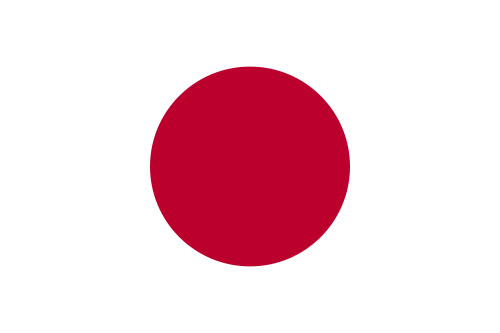Japan is a country that seamlessly blends its rich traditional heritage with cutting-edge technology and modernity. It continues to be a major economic and cultural force, navigating challenges with innovation and a forward-looking approach.
List of Public Holidays and National Holidays in Japan for the year 2025
- New Year’s Day is on Wednesday, 1st January 2025.
- Coming of Age Day is on Monday, 13th January 2025.
- National Foundation Day is on Tuesday, 11th February 2025.
- The Emperor’s Birthday is on Sunday, 23rd February 2025.
- The Emperor’s Birthday Holiday is on Monday, 24th February 2025.
- Vernal Equinox Day is on Thursday, 20th March 2025.
- Shōwa Day is on Tuesday, 29th April 2025.
- Constitution Memorial Day is on Saturday, 3rd May 2025.
- Greenery Day is on Sunday, 4th May 2025.
- Children’s Day is on Monday, 5th May 2025.
- Greenery Day Holiday is on Tuesday, 6th May 2025.
- Marine Day is on Monday, 21st July 2025.
- Mountain Day is on Monday, 11th August 2025.
- Respect for the Aged Day is on Monday, 15th September 2025.
- Autumnal Equinox Day is on Tuesday, 23rd September 2025.
- Health and Sports Day is on Monday, 13th October 2025.
- Culture Day is on Monday, 3rd November 2025.
- Labour Thanksgiving Day is on Sunday, 23rd November 2025.
- Labour Thanksgiving Day Holiday is on Monday, 24th November 2025.
List of Public Holidays and National Holidays in Japan for the year 2024
- New Year’s Day: Monday, 1 January 2024
- Coming of Age Day: Monday, 8 January 2024
- National Foundation Day: Sunday, 11 February 2024
- National Foundation Day Holiday: Monday, 12 February 2024
- The Emperor’s Birthday: Friday, 23 February 2024
- Vernal Equinox Day: Wednesday, 20 March 2024
- Shōwa Day: Monday, 29 April 2024
- Constitution Memorial Day: Friday, 3 May 2024
- Greenery Day: Saturday, 4 May 2024
- Children’s Day: Sunday, 5 May 2024
- Children’s Day Holiday: Monday, 6 May 2024
- Marine Day: Monday, 15 July 2024
- Mountain Day: Sunday, 11 August 2024
- Mountain Day Holiday: Monday, 12 August 2024
- Respect for the Aged Day: Monday, 16 September 2024
- Autumnal Equinox Day: Sunday, 22 September 2024
- Autumnal Equinox Holiday: Monday, 23 September 2024
- Health and Sports Day: Monday, 14 October 2024
- Culture Day Holiday: Monday, 4 November 2024
- Labour Thanksgiving Day: Saturday, 23 November 2024
- New Year’s Day is on Wednesday, 01 January 2020
- Coming of Age Day is on Monday, 13 January 2020
- National Foundation Day is on Tuesday, 11 February 2020
- The Emperor’s Birthday is on Sunday, 23 February 2020
Video about the sights of Japan
Country Profile Japan
- Population: 126.9 million (UN, 2010)
- Capital: Tokyo
- Area: 377,864 sq km (145,894 sq miles)
- Monetary unit: yen
- Internet domain: .jp
- International dialling code: +81

History
- Ancient and Feudal Japan: Influenced by ancient China and Korea, Japan developed a distinctive culture and society. The feudal era was marked by the rule of shoguns and samurai.
- Meiji Restoration: The late 19th century saw the Meiji Restoration, which propelled Japan into rapid modernization and industrialization.
- World War II and Post-War Era: Japan’s expansionist policies led to its involvement in World War II and subsequent devastation. Post-war, Japan experienced remarkable economic growth, becoming one of the world’s leading economies.
Geography
- Island Nation: An archipelago located in East Asia, consisting of four main islands – Honshu, Hokkaido, Kyushu, and Shikoku – and numerous smaller islands.
- Varied Terrain: Ranges from the snowy landscapes of Hokkaido to subtropical beaches in Okinawa. Notable for its mountainous terrain, with Mount Fuji being the most iconic landmark.
- Climate and Natural Disasters: Experiences a range of climatic conditions, from temperate to subtropical. Prone to natural disasters like earthquakes and typhoons.
Culture
- Rich Cultural Heritage: A unique blend of traditional and modern influences. Known for its art forms like tea ceremony, calligraphy, and ikebana (flower arranging), as well as contemporary pop culture, including manga and anime.
- Religion and Philosophy: Shinto and Buddhism are the primary religions, deeply ingrained in Japanese culture and daily life.
- Cuisine: Japanese cuisine (washoku) is renowned worldwide, featuring sushi, tempura, ramen, and sake. Recognized for its emphasis on seasonal ingredients and presentation.
Economy
- Technological Advancement: A global leader in technology, automobile manufacturing, and robotics. Home to major multinational corporations like Toyota, Sony, and Panasonic.
- Economic Challenges: Faces challenges like a stagnant economy, deflation, and an aging population.
- Innovation and Sustainability: Investing in sustainable energy, smart technology, and scientific research to drive future growth.
Society
- Population: Characterized by a high life expectancy and a declining birth rate, leading to an aging society.
- Education System: Highly valued, competitive education system. High literacy rates and technological proficiency.
- Work Culture: Notable for its work ethic, corporate culture, and phenomena like karōshi (death from overwork).
Environmental Initiatives
- Conservation Efforts: Commitment to environmental conservation and reducing greenhouse gas emissions. Leaders in recycling and waste management.
- Natural Beauty: Rich in natural beauty, from cherry blossoms (sakura) in spring to colorful autumn leaves (koyo). Numerous national parks and hot springs (onsen).
Government and Politics
- Constitutional Monarchy: A parliamentary system with a constitutional monarchy. The Emperor is a ceremonial figurehead; political power is held by the Prime Minister and the elected Diet.
- International Relations: A key player in global affairs, particularly in Asia. Strong ties with Western countries, especially the United States.
Tourism
- Cultural and Historical Sites: Attractions include ancient temples and shrines, historical Kyoto, modern Tokyo, and Hiroshima’s Peace Memorial Park.
- Tourism Trends: Growing tourism sector, with efforts to attract more international visitors through cultural festivals, sports events, and rural tourism.
Challenges and Future Outlook
- Demographic Shifts: Addressing the challenges posed by an aging and shrinking population.
- Economic Revitalization: Focusing on economic revitalization through innovation, tourism, and international trade.
- Global Engagement: Continuing to play an influential role in global economic, political, and environmental issues.

